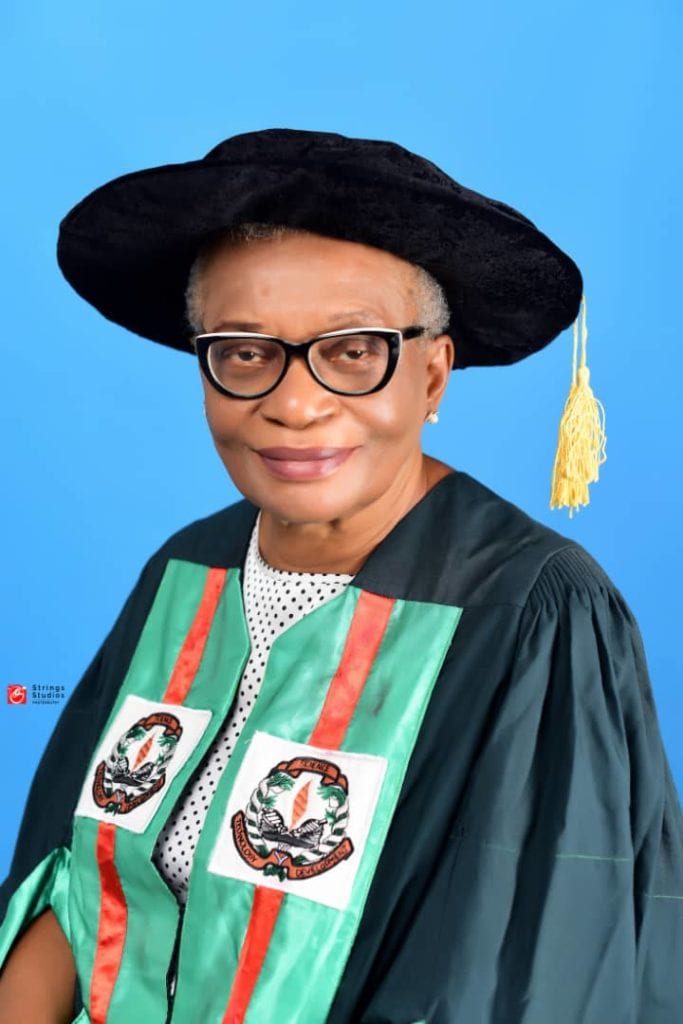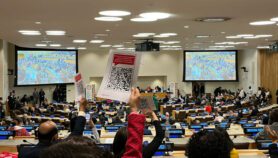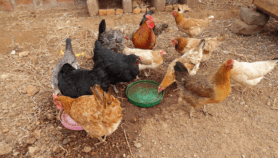By: Royal Uche
Send to a friend
The details you provide on this page will not be used to send unsolicited email, and will not be sold to a 3rd party. See privacy policy.
[LAGOS] The struggle to balance family life with the rigours of research have led some female researchers to give up their careers.
But Ekanem Ikpi Braide, an award-wining scientist who made history in January when she became the first female president of the Nigerian Academy of Science, has a solution to this challenge: efficient time management.
Braide, who received the Jimmy and Rosalynn Carter award in 1994 for her outstanding dedication and achievement in the eradication of Guinea worm disease in Nigeria, and a top award from Nigeria’s president — Officer of the Order of the Federal Republic — in 2010 for her contribution to disease control in Nigeria, wants to use her new platform to give science the boost it needs in Nigeria.
“I schedule time to implement the activities and then transfer my daily scheduled activities to things to do notepad which I carry around.”
Ekanem Ikpi Braide, Nigerian Academy of Science
In an interview with SciDev.Net, Braide describes her journey as a leading female scientist, her contribution to public health and infectious diseases research in Africa, and the secret to her success.
Tell us about your academic background and research work.
I initially wanted to study English because I was good at writing but my father convinced me to study science. I reluctantly did but soon loved science. The problem-solving aspect of science attracted me. I studied zoology for my first degree at the University of Ife (now called Obafemi Awolowo University), Ile-Ife, Nigeria. I received my master’s and doctoral degrees in parasitology at the Cornell University in the United States.
I have undertaken several training courses in epidemiology because I have a strong interest in disease control. There is so much joy in working around determinants to end an epidemic. It is like winning a war.

My research focus is on disease control, particularly operational research, impact assessment of interventions, rapid assessment methods in mapping diseases and community initiatives.
I started my career at the Nigerian Institute for Trypanosomiasis Research as a programme officer and researcher. I later joined the University of Calabar in 1979 as a lecturer and was promoted to the rank of professor 12 years later.
In 1987, I worked with experts at the United Nations International Children’s Emergency Fund (UNICEF) to study the impact of Guinea worm disease in rice production in Nigeria. This study convinced the Nigerian government of the need to control the disease because results showed that the health and socioeconomic impact on rice farming alone was enormous.
In 1997, I was part of a team put together by UNICEF and the federal government of Nigeria to conduct a mission to Honduras to study the successful community participation in water, hygiene and sanitation projects.
What are some of your achievements?
I have initiated many innovative community-directed strategies for preventing and containing Guinea worm disease in Nigeria. The terrain was difficult because the disease affected the very poor in remote and hard-to-reach places.






Ekanem Ikpi Braide, an award-wining scientist and the first female president of the Nigerian Academy of Science
With three other coordinators, we worked collectively with strong support from the Nigeria government and donor partners in reducing the number of cases from 653,000 in 1988 to zero in 2009, implementing health education, distribution of cloth filters, vector control, advocacy for safe water, treatment of impure water and voluntary isolation of cases in an integrated manner. I served the next three years on the WHO/Federal Government of Nigeria Guinea worm Eradication Certification Committee until Nigeria was certified Guinea worm-free in 2013.
I currently serve on Nigeria’s Ministerial Expert Advisory Committee on COVID-19 to advise the minister of health on the pandemic. I also serve on the African Scientific Research and Innovation Committee COVID-19 advisory board.
My research activities continued during my tenures as vice- chancellor, Cross River University of Technology, Calabar, Nigeria (2004 to 2009) and as the first vice-chancellor of Federal University, Lafia, Nigeria, a position I held from 2011 to 2016.
How did you overcome barriers as a female scientist?
I never expected to be treated differently and so I worked hard all the time to make it to the peak of my career. Having my first child in my first year of university meant that I had to adjust to raising kids while studying. I was strongly supported by my husband, colleagues and teachers.



I always aim high so my achievements are always near the peak. I received training in time management early in my career and adhered strictly to one particular module through the years. I think in weekly blocks of time beginning with a Sunday. I identify my roles in life and each week I select three important results I want to accomplish during the next seven days.
“I never expected to be treated differently and so worked hard all the time to make it to the peak of my career.”
Ekanem Ikpi Braide, Nigerian Academy of Science
I schedule time to implement the activities and then transfer my daily scheduled activities to things to-do notepad, which I carry around. Most importantly, I avoid procrastination and strive to do the right things the right way immediately. This has worked for me. I avoid making a list without planning because one usually overloads a list with activities that are not urgent but are in the mind as ‘must do’ and are usually carried over to the next day with accompanying frustration.
As president of the Nigerian Academy of Science, what do you plan to achieve?
The vision, mission and the mandate of the academy remains the same. I will ensure that we continue to implement the strategic plan and review it regularly, reward scientists for good work done, assist in supervising some special grants and in preparations for setting up Nigerian Research Foundation.
We will address gaps in science education in Nigeria particularly at the primary, secondary and tertiary education levels. We will work hard to influence policies at all levels that will strengthen science education at primary and secondary schools, and provide an enabling environment for basic and inclusive education for boys and girls.
Collectively, as fellows of the academy, we will continue to mentor young scientists. We will also continue to draw the attention of the government to national problems that can be solved by science and technology.
This interview has been edited for clarity and brevity.
This piece was produced by SciDev.Net’s Sub-Saharan Africa English desk.














